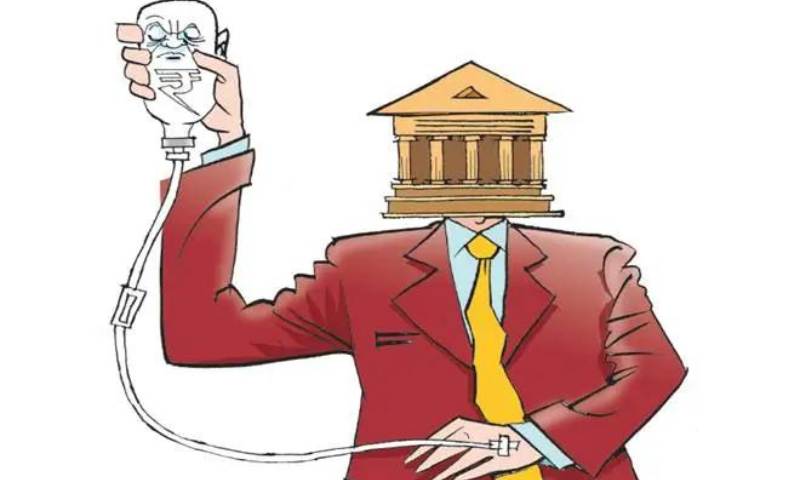Banks have ruled money matters for ages. Now, The future of financial disintermediation shapes a new era, where banks may not sit throne. Tech savvy players bring tools that could snip the old ties between you and traditional banking. They make lending and investing easy peasy without middlemen. Picture lending money directly to others or investing in bits of art all from your phone. We’re at the brink, friends. Dive in as I lay out just how your wallet’s world is changing.
Understanding Financial Disintermediation and Its Drivers
The Rise of FinTech Innovations and P2P Lending
Picture walking into a bank. Now forget that. That’s old school. Today, folks like us can borrow and lend money without setting foot in a bank. That’s thanks to things like FinTech and P2P lending. These are big words for simple ideas. FinTech means using tech to make finance easier. P2P lending lets people lend money to each other online.
Let’s say you need cash for a project. In the old days, you’d ask a bank. Now, you go online, find a P2P site, and get money from someone like you. Why is this a hit? Because it’s fast, less of a hassle, and often cheaper.
Blockchain Technology’s Role in Disrupting Traditional Banking
Now, add blockchain to the mix. It’s like a digital ledger that’s super safe and clear. It keeps record of transactions for everyone to see. No hiding, no cheating. Banks are sweating over this because blockchain can do a lot of what they do. But better, faster, and with less cost.
Blockchain lets us send money across the world like sending an email. Imagine that! No more waiting days for a wire transfer. Just a few clicks, and off goes the cash. And it’s all thanks to this fancy thing called ‘blockchain’.
People also talk about fancy contracts called ‘smart contracts’. These are like regular contracts but they run on blockchain. They do what they’re supposed to do when conditions are met. No need for a person to check things. It’s all automatic. This cuts out a pile of paperwork and waiting.
So, what’s driving all this change? People want easier ways to deal with money. Tech gets better every day. And the world likes things that are fast and cheap. Banks have ruled for a long time. But now, there’s a new game in town, and everyone wants to play.
With all these changes, some folks worry if banks will stick around. They will, but they’ll have to change. They’ll need to use these new tools or make up better ones. It’s like a race, and they’re no longer the only racers.
As a buddy in this game, I’ll tell you, it’s an exciting time. Finance is getting a makeover, and we get to watch it happen. And maybe make a few smart moves along the way. Keep your eyes on these trends because they’re shaping the future of money. And who knows, maybe we’re the ones who’ll tell banks how it’s done from now on.

Deconstructing the Shift Towards Decentralized Finance (DeFi)
Exploring the Growth of DeFi and Its Impact on Banks
Walk down the street and ask someone what DeFi is: most may scratch their heads. It stands for “Decentralized Finance.” Just think of it like a big, open playground for money matters. No bosses, no big banks calling the shots. It’s finance by the people, for the people. Picture this: you want to borrow money. Instead of filling out heaps of paperwork at the bank, you turn to DeFi. You find someone ready to lend, make a deal, and _boom_—you’ve got your money. Simple, right?
DeFi is taking the world by storm. Why? It runs on blockchain – the same tech behind Bitcoin. Blockchain keeps everyone’s info safe, and it’s super transparent. Just like a game of cards where everyone’s hand is on the table. With blockchain in the mix, you can watch your, and everyone else’s money moves in real-time. That’s a big win for trust.
Banks are nervous, and they should be. Peer-to-peer lending lets you skip the bank line. With your phone, you can get or give a loan anywhere, anytime. No more grumpy tellers, no more waiting. But DeFi isn’t just a slight hiccup for banks – it’s a quake shaking their foundations.
The Influence of Smart Contracts on Financial Services
Ever heard of a smart contract? It’s like a regular contract, but it’s a code piece that lives on the blockchain. Here’s how it works: Two people make a deal. They put this deal into a smart contract. Once both parties do their part, the contract seals the deal automatically. No need for handshakes or signing papers.
Smart contracts are game-changers. They mean less talk and more action. You get the keys to your new car or house faster because the system itself checks if payments are done. Cheating the system? Nearly impossible. The smart contract won’t do its thing unless everyone sticks to the plan.
What does this mean for banks and lawyers? Well, they either join the DeFi club or risk being left in the dust. Fintech innovations like these make money stuff quick, easy, and cheap. The old-school bank ways start to look like ancient history.
So, are banks about to go the way of the dinosaurs? Maybe not today or tomorrow. But DeFi is clearly shaking things up. It’s cutting out the middleman in finance. The promise of faster, cheaper, and more open banking is tough to ignore. For you and me, it means more control over our money, better access, and an exciting peek into the future banking models. Strap in, because DeFi’s ride is only speeding up, and it’s going to be a wild one.

Evaluating the Impact of Open Banking and Big Tech
Open Banking as a Catalyst for Financial Ecosystem Change
Open banking is shaking up how we think about money. It lets banks and apps share your financial data, with your okay. This means you can see all your money in one place. It helps you make better choices. Many worry about safety, but laws and tech are in place to keep your data safe. This change also brings new players into the financial world. Fintech companies use open banking to offer services that banks used to provide alone.
Banks must now compete or team up with these new fintechs. Open banking can lead to better products and lower costs for you. The future of this financial shift could be big. We could see a world where banks become a part of a larger financial service web. This could give power back to the customer. Fair prices, better tools, and more choice could be the new normal.
Big Tech’s Foray Into Financial Services and Its Consequences
Now, let’s talk about Big Tech in finance. Companies like Google and Apple are jumping into this space. They’re rolling out payment systems and even credit services. This move has a big effect on how we use money. These tech giants have many users and loads of data. They can create personalized financial experiences for millions. Think of paying for stuff with your phone or watch. That’s becoming more common, thanks to Big Tech.
This scares some traditional banks. They fear losing their place in the financial world. But it’s not just about competition. Big Tech firms also face tough rules in finance. They must keep your data safe and follow the same laws as banks.
Looking ahead, Big Tech might change how everyone, including banks, thinks about money. Having tech know-how and user trust can make them strong players in finance. It’s not clear if they’ll replace banks or work with them. Either way, they’re pushing the finance world to change. We’ll likely see newer, smarter ways to manage and move our money in the future.

The Evolving Landscape of Digital Banking and Payments
The Surge of Mobile Payment Advancements and Digital Wallets
Imagine paying for anything with just a tap. No cash, no cards. Sounds cool, right? That’s where the world’s headed thanks to mobile payment advancements. Phones now act like wallets, storing money securely. We use them to buy things fast and easy. People love it because it’s super simple.
Companies work hard to make these mobile wallets safe and fun to use. They keep adding cool features and rewards. Some folks wonder, “Will wallets even matter in years to come?” The answer is maybe not! Mobile payments might take over completely.
Kids might one day ask, “What’s a wallet?” And we might say, “Just an old memory!” The point is, we’re moving toward a life where paying is just a tap away. Just like magic, but real!
Cryptocurrency Integration in Banking: A Shifting Paradigm
Let me tell you about a huge change coming to banks. You know about Bitcoin, right? It’s one of those digital monies people chat about. Well, banks are starting to use it more and more. Cryptocurrency in banking is getting real!
It’s like this: long ago, people traded stuff to buy things. Then came coins, and next, paper money. Now, we’re at a new step – digital currency. Crypto is different because it’s not run by any country. It’s all on computers, super secured by something called blockchain.
Some folks think crypto is risky. Others believe it’s the future of money. Many banks, they’re in the middle. They’re trying out crypto, slowly and carefully.
Kids may one day say, “We only use digital money.” And we might reply, “Yep, that’s how it goes!” So, just watch as banks keep changing with new tech. It’s a wild ride, and we’re all on it together!
We dived deep into how money stuff is changing fast. From FinTech and P2P lending, blockchain is shaking up old bank ways. We saw DeFi grow and smart contracts change how we handle money. Open banking is making waves, and Big Tech is stepping in. We can’t ignore how phones and digital wallets are changing payments, and cryptos are making their mark, too.
My final thought? Get ready for big shifts in how we use and move our money. It’s an exciting time, and staying informed is key. This change can be good for all of us if we learn and adapt. Thanks for joining me on this journey through the future of finance!
Q&A :
What is financial disintermediation and how is it likely to evolve?
Financial disintermediation refers to the process by which consumers or businesses bypass traditional financial intermediaries, like banks and brokers, to directly access financial services or markets. This trend is likely to evolve with advancements in technology, especially blockchain and peer-to-peer platforms, potentially leading to a more decentralized and accessible financial landscape.
How does technology impact the future of financial disintermediation?
Technology plays a pivotal role in shaping the future of financial disintermediation. Innovations such as fintech, mobile payments, and cryptocurrency are already disrupting traditional banking models. Moving forward, increased adoption of AI, machine learning, and advanced analytics is expected to further streamline direct financial activities and enhance the user experience.
Why is financial disintermediation significant for consumers and businesses?
Financial disintermediation can be significant for consumers and businesses as it often leads to reduced costs, increased efficiency, and better control over financial transactions. By eliminating or reducing the need for intermediaries, end-users might benefit from lower fees and faster services. Additionally, it opens the door for tailored financial solutions that can be more responsive to individual needs.
What challenges does financial disintermediation pose to the existing financial system?
Financial disintermediation poses several challenges to the existing financial system, including regulatory hurdles, security concerns, and the potential for increased systemic risk. Traditional financial institutions may also face the challenge of adapting their business models to stay competitive in a changing financial landscape that increasingly favors direct transactions and decentralized services.
How is blockchain technology influencing the future of financial disintermediation?
Blockchain technology is a major influence on the future of financial disintermediation, as it underpins cryptocurrencies and enables smart contracts. This technology promotes transparency and security, while effectively removing the need for intermediaries in various transactions. Its potential to enable truly peer-to-peer financial interactions is likely to further drive disintermediation in the financial sector.



